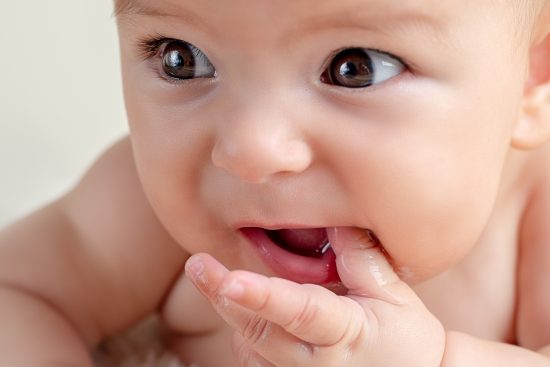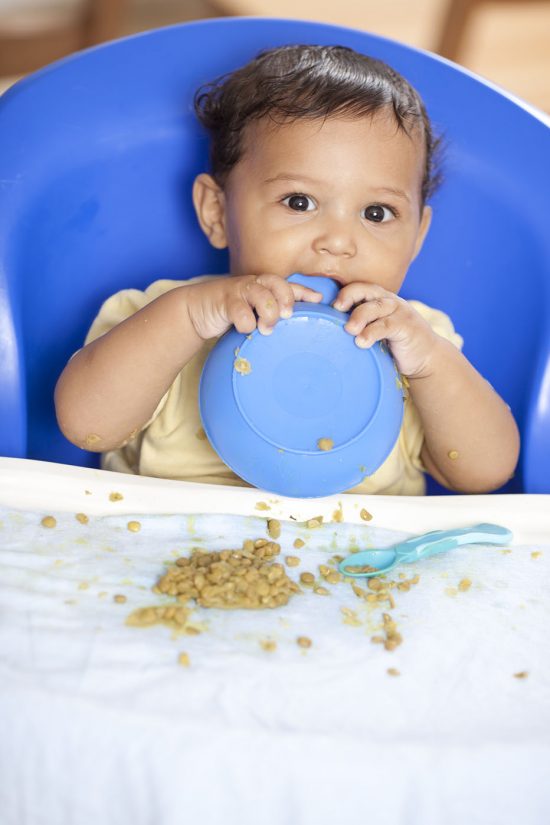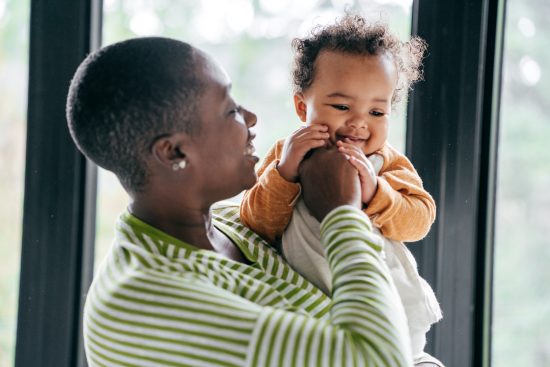Teething signs can be confusing and you’ll hear so many myths out there. Here we explore what teething is exactly, the sure signs to look out for, and the signs something more serious is at play.

A journey every baby experiences in those first precious months and years. Yes, your baby too (there’s no escaping it we’re afraid).
Unfortunately, teething happens at the same time as they are vulnerable to a number of other illnesses and ailments.
This has led to confusion around what’s a sign of teething, and what’s not. Not just among parents but also some healthcare professionals. In the words of all those babies out there…uh oh.
Here we look at the signs and symptoms those pesky pearls are widely agreed to cause as they emerge. It also flags up signs and symptoms not caused by teething that you’ll need to go and see your doctor about.
Teething is where your baby’s teeth start to emerge through their gums.
The first milk teeth are already lurking under the gums when your baby is born, and they usually appear on the surface between six and nine months.
Your baby’s complete set of pearly whites is usually on show by the time they’re three years old. For a full guide to which teeth appear and when, see our month-by-month teething article.

A baby’s teeth sometimes appear with no pain or discomfort at all, phew. But others experience a constant, dull pain that gets increasingly intense in the four days before a tooth pops through, before rapidly improving.
Your baby can’t tell you they are in pain (sad face), but you might see some pretty obvious signs there is a tooth on its way.
The signs widely agreed to be sure indicators of teething include:
• Drool, and lots of it. Babies can dribble way more than usual.
• Being more grumpy, distressed and irritable than usual.
• Biting and gumming down on anything and everything – that’s because the gnawing and chewing provides them with relief.
• Sore and red gums.
• A loss of appetite.
Other symptoms that might be signs of teething (although there is some debate over these) include: gum-rubbing; sucking; wakefulness; ear-rubbing; facial rash; and a runny nose. A mildly-raised temperature might also be a sign but it should not be over 38°C.
Your baby might be showing one of these signs or symptoms, or all of them. As with everything baby related, no two little ones are the same. In fact, teething signs can be so wide ranging, and vary so much from baby to baby that only one third of teething infants would experience any one of the signs above.

Some studies go as far as to say none of these symptoms can be proven to be a sign of teething. They suggest the only way to know if your baby is teething is to examine their mouth – looking and feeling for an emerging tooth.
Try laying your baby on your lap and sneaking a peek inside their mouth by moving their top or bottom lip or gently coaxing open their jaw. Use a clean finger to gently feel around their upper and lower gums systematically, one potential tooth spot at a time.
Other signs and symptoms people often associate with teething but that studies have found are generally NOT linked with teething include:
• Congestion and coughs.
• Sleep disturbance.
• Runny poos, increased number of poops and nappy rash associated with them.
• Less interest or appetite for liquids.
• Rashes other than facial rashes.
• Fever over 38°C.
• Vomiting.
It’s really important you don’t assume one of these is a sign of teething. It could be more serious and require medical attention.
A fever and other clinically important symptoms, like diarrhoea, rashes, and vomiting are very unlikely to be caused by teething, so make sure you talk to your GP or call NHS 111.
One study looked at 50 babies admitted to hospital suffering from teething. In 48 of these children, a medical condition other than teething was identified, including a case of bacterial meningitis.
You can read our articles on how to ease the pain associated with teething, and top tips proven to work. If you’re breastfeeding and worried about your baby biting during feeds or you’re experiencing any pain because of developing teeth, see our tips here.
It is also important to look after yourself, as your baby’s upset is likely to be stressful. You might feel exhausted too, as they’ll require even more of your attention. Our keeping calm with a crying baby article has some useful techniques you can try to keep your stress levels down.
Our support line offers practical and emotional support with feeding your baby and general enquiries for parents, members and volunteers: 0300 330 0700.
You might find attending one of NCT’s Early Days groups helpful as they give you the opportunity to explore different approaches to important parenting issues with a qualified group leader and other new parents in your area.
Make friends with other parents-to-be and new parents in your local area for support and friendship by seeing what NCT activities are happening nearby.
Read more about fever in children from the NHS.
For more information on what other illnesses may be causing their fever, this article from NICE is very useful.
If you are concerned, contact your GP or call NHS 111 where you can access urgent medical help fast.